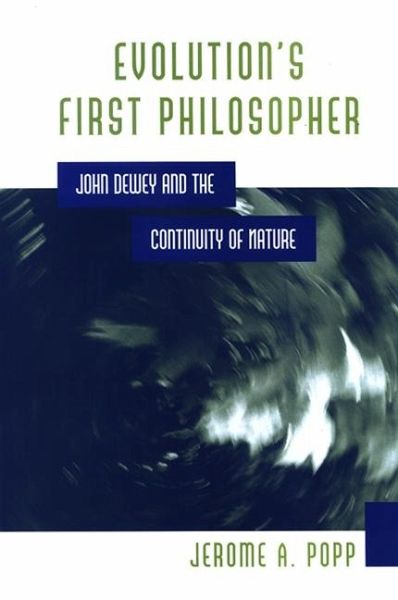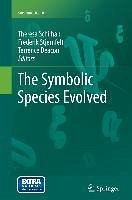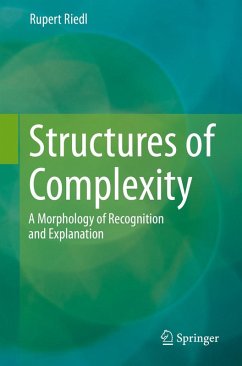
Evolution's First Philosopher (eBook, PDF)
John Dewey and the Continuity of Nature
Versandkostenfrei!
Sofort per Download lieferbar
25,95 €
inkl. MwSt.
Weitere Ausgaben:

PAYBACK Punkte
13 °P sammeln!
Examines John Dewey's ideas in the context of evolutionary theory.John Dewey was the first philosopher to recognize that Darwin's thesis about natural selection not only required us to change how we think about ourselves and the life forms around us, but also required a markedly different approach to philosophy. Evolution's First Philosopher shows how Dewey's arguments arose from his recognition of the continuity of natural selection and mindedness, from which he developed his concept of growth. Growth, for Dewey, has no end beyond itself and forms the basis of a naturalized theory of ethics. ...
Examines John Dewey's ideas in the context of evolutionary theory.
John Dewey was the first philosopher to recognize that Darwin's thesis about natural selection not only required us to change how we think about ourselves and the life forms around us, but also required a markedly different approach to philosophy. Evolution's First Philosopher shows how Dewey's arguments arose from his recognition of the continuity of natural selection and mindedness, from which he developed his concept of growth. Growth, for Dewey, has no end beyond itself and forms the basis of a naturalized theory of ethics. While other philosophers gave some attention to evolutionary theory, it was Dewey alone who saw that Darwinism provides the basis for a naturalized theory of meaning. This, in turn, portends a new account of knowledge, ethics, and democracy. To clarify evolution's conception of natural selection, Jerome A. Popp looks at brain science and examines the relationship between the genome and experience in terms of the contemporary concepts of preparedness and plasticity. This research shows how comprehensive and penetrating Dewey's thought was in terms of further consequences for the philosophical method entailed by Darwin's thesis. Dewey's foresight is further legitimated when Popp places his work within the context of the current thought of Daniel Dennett.
John Dewey was the first philosopher to recognize that Darwin's thesis about natural selection not only required us to change how we think about ourselves and the life forms around us, but also required a markedly different approach to philosophy. Evolution's First Philosopher shows how Dewey's arguments arose from his recognition of the continuity of natural selection and mindedness, from which he developed his concept of growth. Growth, for Dewey, has no end beyond itself and forms the basis of a naturalized theory of ethics. While other philosophers gave some attention to evolutionary theory, it was Dewey alone who saw that Darwinism provides the basis for a naturalized theory of meaning. This, in turn, portends a new account of knowledge, ethics, and democracy. To clarify evolution's conception of natural selection, Jerome A. Popp looks at brain science and examines the relationship between the genome and experience in terms of the contemporary concepts of preparedness and plasticity. This research shows how comprehensive and penetrating Dewey's thought was in terms of further consequences for the philosophical method entailed by Darwin's thesis. Dewey's foresight is further legitimated when Popp places his work within the context of the current thought of Daniel Dennett.
Dieser Download kann aus rechtlichen Gründen nur mit Rechnungsadresse in A, D ausgeliefert werden.













